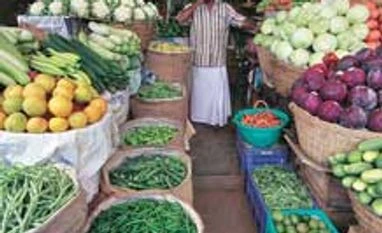"We are soon going to conduct regular inspections of vegetable and fruit markets, as well as of facilities that manufacture fruit-based beverages. Surveillance through sampling is going to be a major area of focus for FSSAI in the near future and we have already started taking steps to facilitate this," FSSAI Chief Executive Officer Dillip Kumar Samantaray told Business Standard.
In a meeting earlier this month, the Central Advisory Committee (CAC) of FSSAI also constituted a surveillance committee to formulate guidelines and detail a framework to carry on these inspections activities, another official said. FSSAI is the regulatory agency to monitor quality of food items, including imported products sold in the country.
More From This Section
The move comes in the wake of a Supreme Court order of last October voicing serious concerns over the harmful effects of carbonated drinks on the health of people. The apex court had asked FSSAI to monitor all manufacturing facilities of carbonated drinks, as well as major fruits and vegetable markets, to keep a tab on presence of pesticide residues in food products.
According to Samantaray, if manufacturing facilities or products sold in markets are found short on compliance, companies can face a hefty penalty under the Food Safety and Standards Act. "In extreme cases, if found guilty, they can also face tough actions, including prosecution," he said.
The panel formed for creating the surveillance framework is expected to give its report within a month, the official said. The report would primarily streamline criterion and processes for these checks. Once the framework is in place, the regulator would start inspections.
While some of the inspections would be carried by the central regulatory agency, it would also be assisted significantly by state level food safety officers. Various state food safety commissioners are also part of the surveillance committee constituted by FSSAI's CAC.
The SC had also directed FSSAI to evaluate the harmful effects of soft drinks on human health and to ensure that all beverages have labels detailing their ingredients, including levels of added chemicals.
)